In the early hours of Monday, General Seyed Razi Mousavi was tragically killed in an Israeli airstrike in the residential neighborhood of the Zeinabiyah district in the suburbs of Damascus.
According to Iran's Ambassador to Damascus, Hossein Akbari, Mousavi was at the Iranian embassy at 2 p.m. local time and tragically lost his life after being struck by three missiles upon returning home from work at 4:10 p.m. He condemned the Israeli act as "heartless and passive."
Mousavi perished while serving on Iran’s military advisory mission in Syria, where Iranians have been lending assistance and guidance to the Syrian government. This mission was the first to provide immediate support to Syria in 2014 when the country found itself under the grip of the Daesh terror outfit. Under the leadership of General Soleimani, the mission played a crucial role in Damascus’ successful counterterrorism efforts, ultimately defeating Daesh in late 2017.
“There might be a few reasons as to why Israel decided to commit this assassination while it is deeply bogged down in Gaza," Ali Abdi, a political expert on Palestine, told Iranian TV. “Israel has so far spent billions of dollars and lost hundreds of forces in the besieged Gaza Strip to eradicate Hamas. Hamas' position is as strong as it was before and the regime is becoming increasingly unpopular among the masses across the world,” said Abdi, adding that the move could be seen as an act of avenge for all the losses Israel has endured while facing off Palestinians in the battlefield.
Observers have also put the assassination of General Mousavi within the context of deterrence equations in the region. Israel has lost deterrence since October 7 and it has been working to restore its lost deterrence with such assassinations. According to independent observers, Israel deliberately chose to strike on the Syrian front although other fronts such as Lebanon and Yemen have been actively battling Israel more than the Syrian one. This, according to observers, stems from Israel’s dire need to communicate a message of deterrence. But it is widely believed that such targeted assassinations are unlikely to tip the balance in Israel’s favor.
While Iran has consistently extended support to the Palestinian resistance, it has iterated that its operations against Israel, including the attack on October 7, are independently planned and executed by Palestinian factions themselves. However, Israel seems to find it difficult to acknowledge the severe setbacks it has faced from Palestinian groups, which it has subjugated in every manner possible over the past 75 years. Consequently, it tends to attribute blame to Iran whenever a crisis arises.
Abdi also conjectured that Israel might be endeavoring to expand the conflict beyond Gaza’s borders, seeking direct U.S. involvement while alleviating pressure on the regime to cease the war in Gaza. He, however, emphasized the need for a resolute response against Israel’s recent terrorist act.
Iranian officials seem to be of the same mind as Abdi. The Spokesperson for Iran's defense ministry, Brigadier General Reza Talaee Nik, earlier affirmed, “The Zionist regime will face consequences for the assassination.” Iran's highest-ranking military commander, Mohammad Baqeri, has also vowed a robust retaliation, denouncing the assassination of General Razi Mousavi as a strategic blunder by the Zionist regime.
The current situation evokes memories of the 2020 assassination of General Soleimani. In January of that year, former U.S. President Donald Trump directly ordered drone strikes that resulted in the killing of the revered anti-terror figure, who was in Baghdad on an official visit, along with his Iraqi counterpart Abu Mahdi al-Muhandis, the deputy commander of Iraq’s Popular Mobilization Force.
In a retaliatory move five days later, Iran launched dozens of missiles at the Ain al-Assad air base in al-Anbar Governorate, western Iraq, as well as another U.S. air base in Erbil, fulfilling its vow of “firm retaliation” for the assassination.
The U.S. reported that following the attack on the al-Assad airbase, which marked the first strike on American positions since WWII, 100 of its troops experienced “traumatic brain injuries.” Recounting his experience to the U.S. media, one American soldier vividly described the anguish, stating, “I still have recurring nightmares from the incoming—just that sound of those things coming in.”
The Palestinian resistance movement Hamas, currently engaged in a fierce conflict against Israel, has denounced the killing of General Mousavi as a “blatant violation of international laws,” urging for legal action against the regime for its terrorist attacks.
The motive behind Israel's assassination of the advisor remains unclear. As such killings have, thus far, had no impact on Iran's progress across various domains, it is uncertain what Israel aimed to achieve.
First Published by Tehran Times






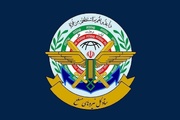


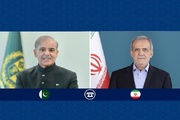
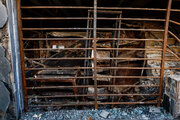


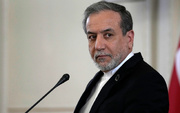








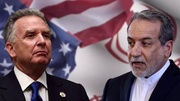
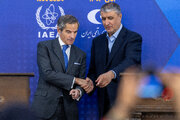



Your Comment